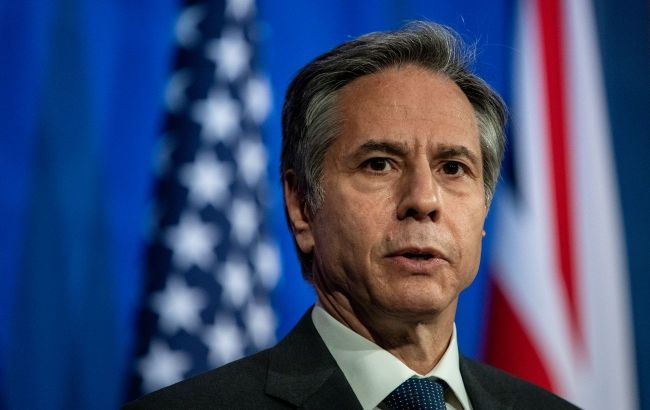Blinken names probable timing of Iran and Hezbollah's attack on Israel
 US Secretary of State Antony Blinken (Getty Images)
US Secretary of State Antony Blinken (Getty Images)
US Secretary of State Antony Blinken has warned that an attack by Iran and Hezbollah on Israel could commence as soon as Monday, August 5, citing Axios.
The head of American diplomacy convened a conference call with close US allies from the Group of Seven (G7) to coordinate actions and attempt a last-minute effort to exert diplomatic pressure on Iran and Hezbollah to minimize their retaliation. According to Blinken, limiting the impact of Islamist strikes is the best chance to prevent a full-scale war.
Blinken emphasized that the US is convinced that Iran and Hezbollah are planning retaliation. However, he did not specify what form this retaliation might take, compared to the attack on Israel on April 13th, when Tehran launched nearly 350 drones and missiles at Israel. Tel Aviv, the U.S., and their allies worked together to intercept most of them.
The secretary of state said the US doesn't know the exact timing of the attacks but stressed it could start as early as the next 24-48 hours — meaning as early as Monday. He also told his counterparts the US is making efforts to break the escalatory cycle by trying to limit the attacks by Iran and Hezbollah as much as possible and then restrain the Israeli response.
The Secretary of State appealed to the foreign ministers of the G7 countries, urging them to apply diplomatic pressure on Iran, Hezbollah, and Israel to maintain maximum restraint.
One source who participated in the phone call reported that Blinken appeared disappointed when informing ministers about recent negotiations with Israel regarding the release of hostages in the Gaza Strip and a ceasefire agreement.
He mentioned that before the assassination in Tehran, the White House was close to a breakthrough and that now a deal is needed more than ever.
Iran and Hezbollah's attack on Israel
At the end of July, Hamas political leader Ismail Haniyeh was killed in Tehran. According to Western media reports, he was blown up in a building by Iranian special forces recruited by Mossad.
On the same day in Beirut, Hezbollah military commander Fuad Shukr was also killed.
Iran and Hezbollah have vowed to attack Israel in retaliation for these assassinations. The IDF is preparing for days of rocket and drone strikes.
The United States has begun reinforcing its military presence in the Middle East solely for defensive purposes.
Washington has also urged Iran to moderate its retaliation for the killing of the Hamas leader, but Tehran has refused to comply with this request.

